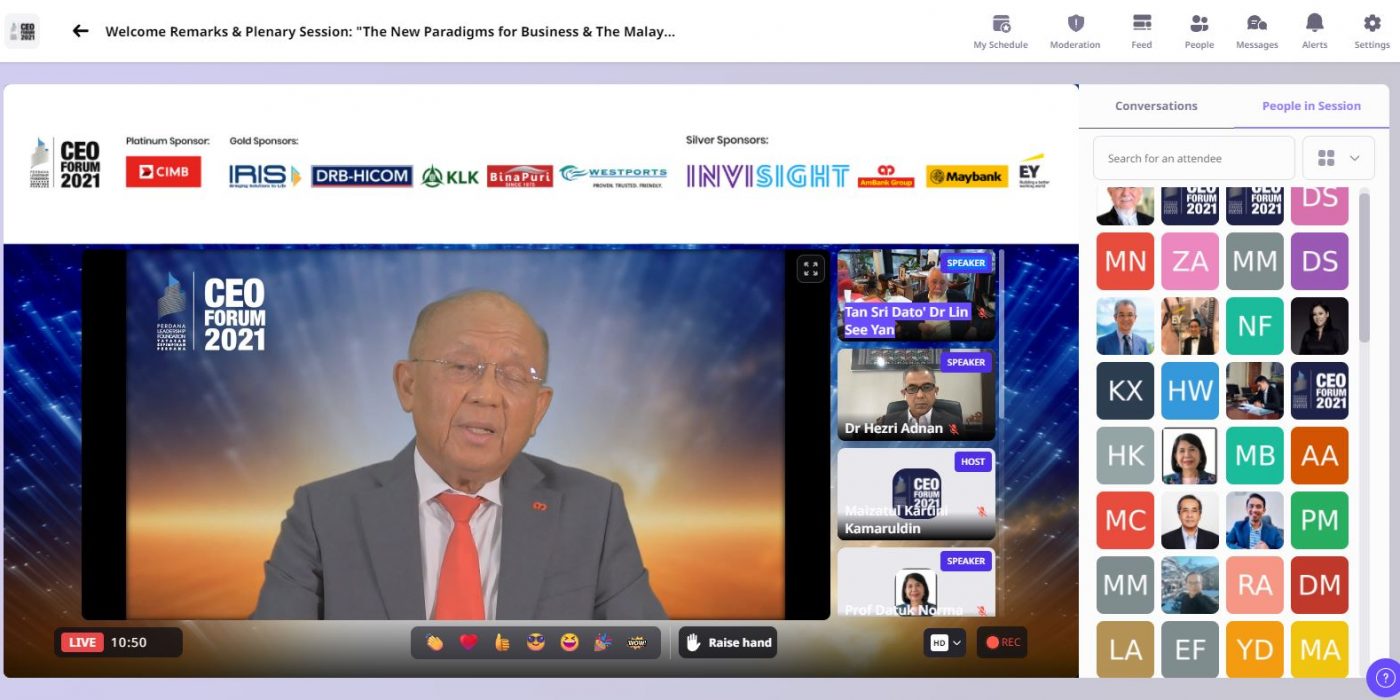A Warm Welcome and an Insightful Panel Kicks Off the Virtual PLF CEO Forum 2021
PLF hosted the 8th edition of its flagship CEO Forum on 20th and 21st October 2021. Virtual for the first time, the Forum featured more than 30 speakers in 11 plenary, keynote, and concurrent sessions centred on the theme “Business in the New Normal”.
Attended by more than 300 people, the Forum was made possible with the generous sponsorship of Platinum Sponsor CIMB, Gold Sponsors Bina Puri Holdings, IRIS Corporation, DRB-HICOM, Kuala Lumpur Kepong Berhad, and Westports Malaysia, and Silver Sponsors AmBank, Maybank, EY, and Invisight.
The Forum started off bright and early with welcome remarks from PLF Chairman, Tan Sri Azman Hashim. In his short address, Tan Sri reminded the audience of the enormity of the challenge Malaysia and the rest of the world face in battling the ravages of Covid-19. He pointed out that the world is irrevocably changed due to the pandemic but the new equilibrium has yet to be attained. As such, businesses and people remain in flux and have to constantly adapt.
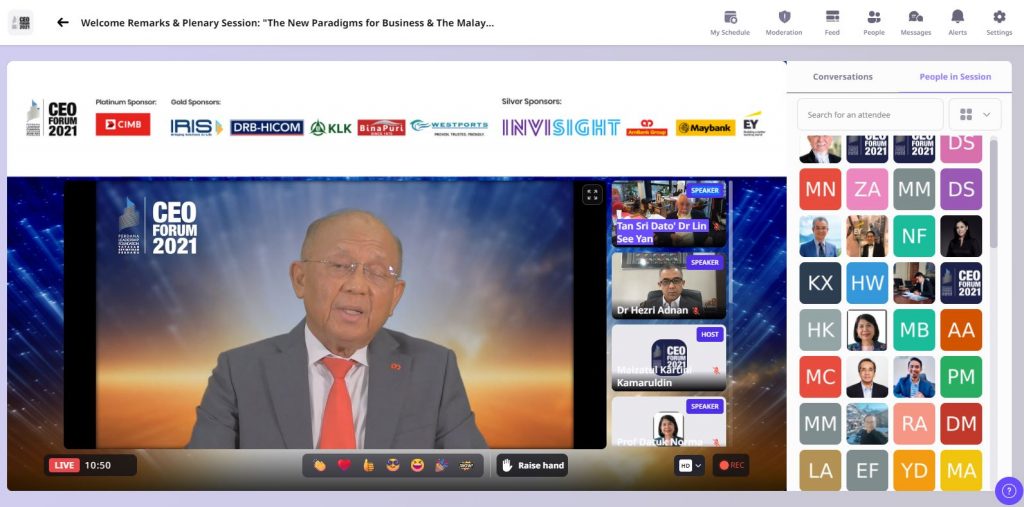
“As a banker since the 1960s, I have seen quite a few economic upheavals in my time but I have not seen a disruption in lives, business and the economy on the scale and level that Covid-19 has wrought. First, we as a nation mourn the deaths in Malaysia due to Covid. The deaths are sorrowful reminders of our own frailty in the face of the unexpected. Al-Fatihah and condolences to the families of all affected. Slowly but surely, we are pulling ourselves out from the depths of the pandemic. As the number of infections and deaths fall, and as businesses emerge from lockdowns, the question that we now face is this: what has the world become in the two years of the pandemic?” – Tan Sri Azman Hashim.
Tan Sri’s opening remarks were followed by an insightful Plenary session moderated by Dr Hezri Adnan, Executive Director of MIER, on “The New Paradigms for Business and the Malaysian Economy”, where Panellists YM Raja Teh Maimunah, Tan Sri Dato’ Dr Lin See Yan, Emeritus Prof Datuk Dr Norma Mansor, and Professor Dr Jomo KS, elaborated on the shifts necessitated by Covid-19.
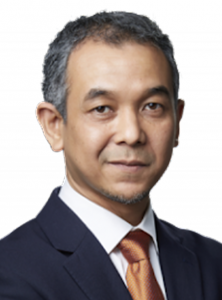
Dr Hezri helpfully highlighted key megatrends for the coming year: first, that this is a “remarkable period of innovation”, with one measure, the number of patents in the US, doubling in the past year from the year before. Second, e-shopping, virtual classrooms, and online meetings are here to stay. Third, healthcare has seen a boom that will likely continue, especially in vaccine research, with more than US$180 billion spent on developing Covid-19 vaccines. Finally, there is more concerted focus on sustainability with trillions being spent on renewable energy and environmental protection.
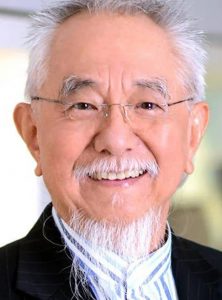
Against this global change scenario, Tan Sri Dato’ Dr Lin See Yan, Executive Chairman of Zeta Advisory, pointed out that governments do face tougher policy choices as the pandemic has meant subdued economic growth which invariably leads to greater income inequality, higher unemployment, and food insecurity. While many expect the global economy to rebound, economic recovery will be uneven for some time to come, due to the uneven pace of vaccine rollouts, variations in available government support, and the possibility of more aggressive Covid-19 variants. Malaysia’s economic position, too, remains in question as it has slipped from third to sixth position in ASEAN with no clear policy direction.
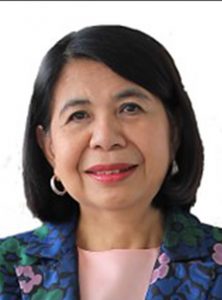
Picking up on the subject of uneven economic growth, Emeritus Prof Datuk Dr Norma Mansor, President of the Malaysian Economic Association, stated one impact of Covid-19: Around 770,000 Malaysians remain unemployed following the closure of thousands of businesses in 2020 and 2021 due to the prolonged lockdowns, despite all the stimulus packages the government has introduced. This has deepened structural inequality in Malaysia. For Malaysia to heal properly from the pandemic and address the structural disrepair, longer-term policies that include emphases on digitalisation, social protection, and environmental responsibilities, are required. She also mentioned three immediate areas of concern: digitalisation in the private and public sectors; promoting trade opportunities for Malaysian companies, especially for exports of environmentally-friendly goods; and data openness as this will allow innovative entrepreneurs to provide services that leverage on public data.

On the subject of digitalisation, YM Raja Teh Maimunah, Managing Director of Wholesale Banking, AmBank Group, recounted the experience of Ambank having to shift thousands of employees to a work-from-home environment. It required plenty of planning, coordination, but also expenditure on devices and connections. Small and micro enterprises do not have the same capacity to adapt as most are not able to afford the shift to digital. This is where banks and the government can play a role; the banks in providing digitalisation financing and the government in ensuring the nation’s digital infrastructure is robust and affordable. In terms of broadband speed, Malaysia unfortunately ranks 94th among 140 countries in the world.
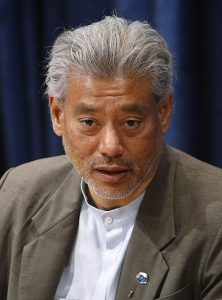
Continuing the thread on SMEs, Professor Dr KS Jomo, Research Advisor of Khazanah Research Institute, stated that due to globalisation, many economies, including Malaysia’s, are dominated by big foreign firms. This means less attention to the SME sector, despite this sector being the one where new Malaysian capability can be grown and nurtured. He gave the example of the 1980s when Malaysia’s palm oil sector grew not just in terms of its economic contribution but also in terms of the Malaysian capabilities it developed. The Malaysian economy today, he said, is not built by Malaysians alone, and it’s crucial that the foreign factor is taken into account in national statistics, especially labour productivity. The pandemic should give us pause and compel us to review the composition of our national economy.
“As to be expected, emerging Asia, in particular China and India, are driving world growth and world trade.” – Tan Sri Dato’ Dr Lin See Yan
“It’s estimated that the informal work and gig sector constitutes about 31.5% of our GDP between 1995 and 2015, with around 1.2 million workers.”- Emeritus Prof Datuk Dr Norma Mansor
“The SMEs that, 18 months down the road, still have not figured out how to sell or transact online are most likely those that have had to close shop.” – YM Raja Teh Maimunah
“In Malaysia, we pretend as if it is only Malaysians who are building the economy when the labour force is almost one third foreign.” – Prof Dr KS Jomo
